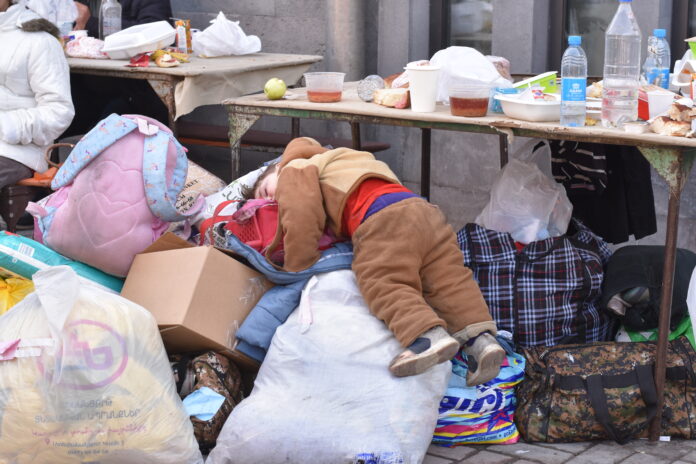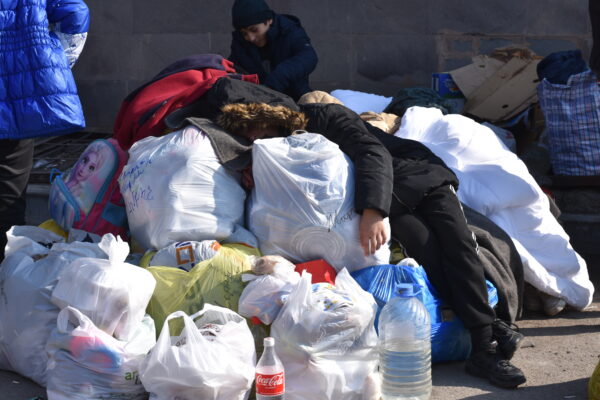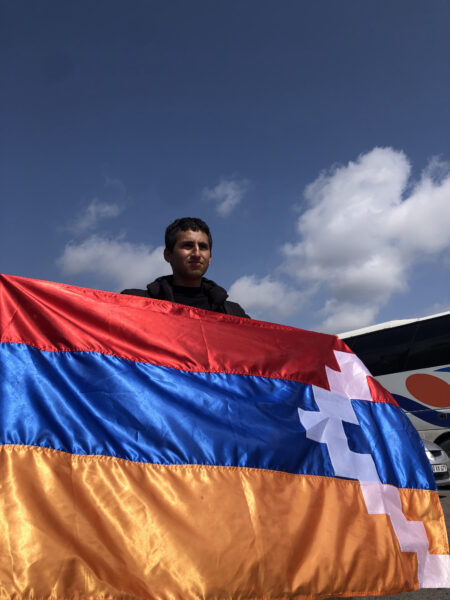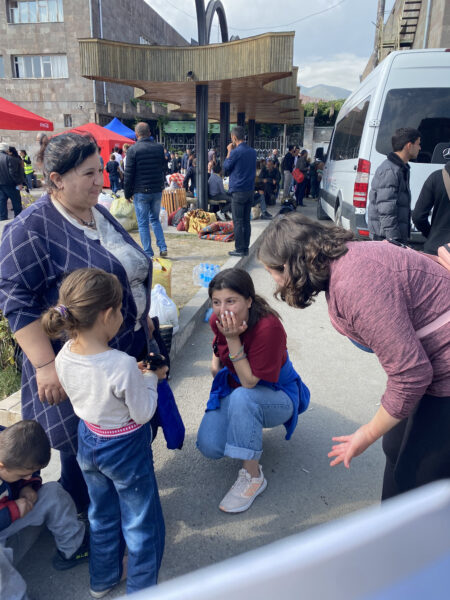By Lida Asilyan
Special to the Mirror-Spectator
GORIS, Armenia — As one walks in the crowded, narrow streets of Goris in the south of Armenia, thousands of interrupted lives and destinies haunt a visitor. In all the corners of the city’s small square one can see bundled belongings in chaos, kids asleep on their bags, people queuing for warm food, and an endless number of cars and buses coming.
Anoush Aghajanyan, a woman in her 50s forcibly displaced from Artsakh (Nagorno-Karabakh), puts her current state succinctly, possessing: “only some documents and handbags. It has been ten days that we are wearing the same clothes.”
In the early afternoon of September 19, 2023, Azerbaijani armed forces launched a large-scale military offensive against Artsakh, resulting in 200 dead and 400 injured. The attack came nine months into Azerbaijan’s blockade of Artsakh that left 120,000 ethnic Armenians, including 30,000 children and 2,000 pregnant women, deprived of food, medicine, and basic necessities. Azerbaijan also disrupted Artsakh’s fuel and gas supplies, restricting the movement of ambulances and cars.
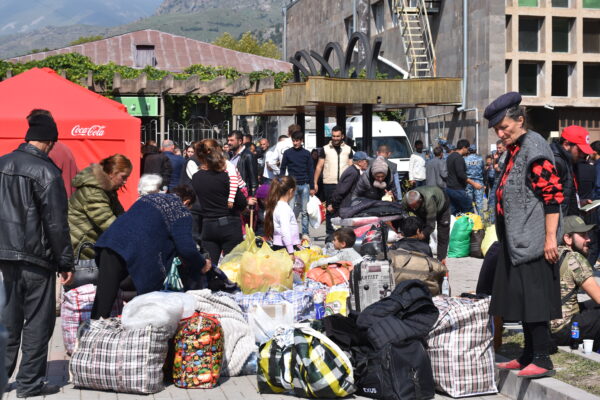
“I was at work, at school, teaching, and all of sudden, I heard everyone screaming that a war had started. We were trapped by war, like being in the middle of a burning pot,” Aghajanyan said. She rushed from the school to her house, grabbed her grandchildren, and ran to the center of the village, where there were some cars trying to evacuate people.



